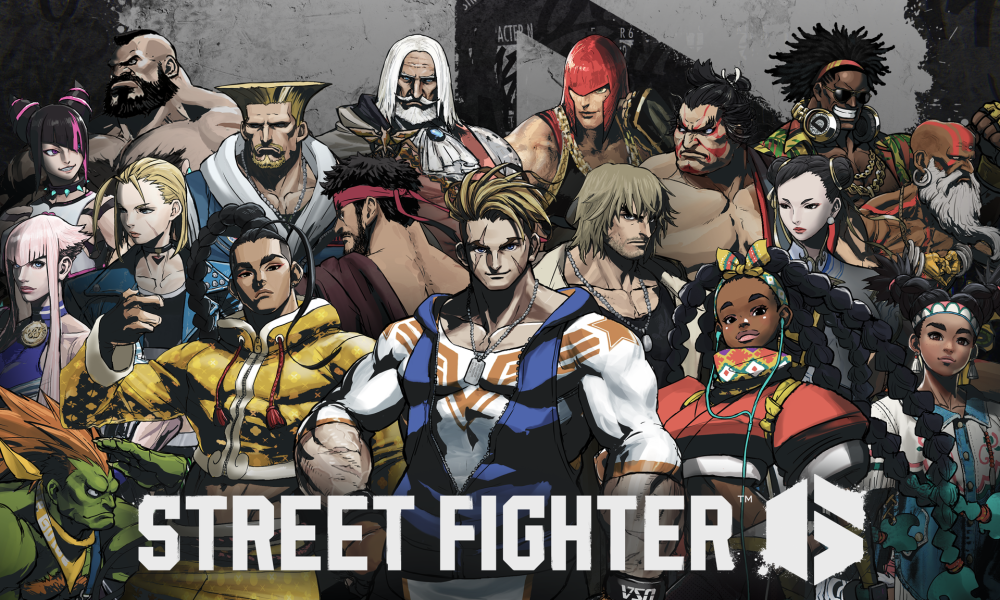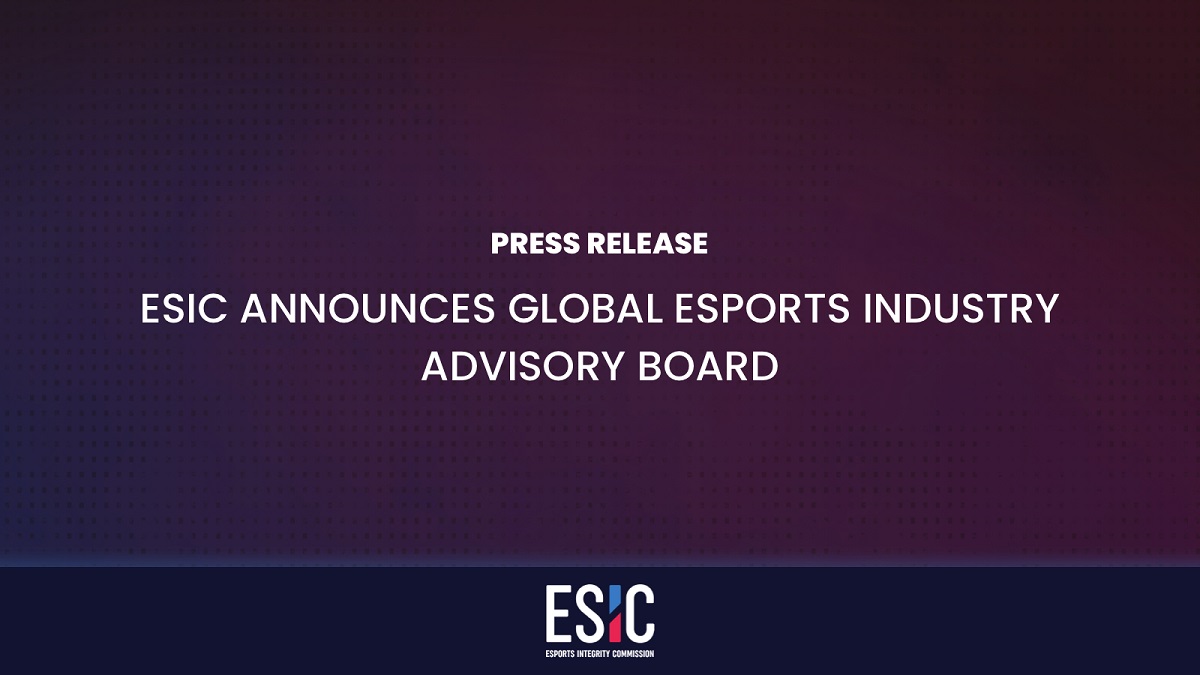

eSports
10 Most Watched Twitch Streamers of 2020 So Far as Ninja and Others Eye Return
– Summit1g hits top spot with 75million hours watched
– End of Mixer leaves door open to Ninja & Shroud
– No Myth or Pokimane in top 10 list
2020 has been a strange year — but Twitch streamers have had it stranger than most. The global lockdown has driven huge spikes across the streaming world as these entertainers have been a lifeline for millions of fans looking for company and distraction from the safety of their home.
This led to 101% year-on-year viewership growth in April.
The award-winning esports bookmakers at Unikrn have created a list of the top 10 most watched twitch streamers of 2020 so far.
This comes with this week’s news that Microsoft has ditched their own streaming service, Mixer, leaving the door open for some of the biggest streamers on the planet to return to Twitch.
Tyler Blevins, known on Twitch as Ninja, accrued 14 million followers on Twitch before leaving to join Mixer in October last year, but the Fortnite gamer joined other big names such as Michael “Shroud” Grzesiek and Cory “King Gothalion” Michael as free agents with Mixer’s collapse.
So, they too could make this list before the end of the year!
Most Watched Twitch Streamers of 2020
10.
TimTheTatman
Name: Timothy Betar
Games: Fortnite, Overwatch, Call of Duty:
Country: United States
Age: 29
The online personality has recently become an icon.
Now with nearly five million followers on Twitch, you may have seen the 29-year-old in the NFL 100 advert at Superbowl LIV earlier this year.
Followers: 4,947,610
Watch time in 2020: 24,293,873 hours
9.
Lirik
Name: Saqib Zahid
Games: PUBG, GTA V, others
Country: United States
Age: 29
Lirik has become well-known for his walkthroughs and guides as well as his competitive multiplayer gaming.
The 29-year-old is the king of variety, trying new games to give his fans a fair review of new opportunities.
Followers: 2,624,326
Watch time in 2020: 24,647,532 hours
8.
Rubius
Name: Ruben Gundersen
Games: Fortnite, Minecraft and others
Country: Spain
Age: 30
Rubius is rumoured to be one of the highest earners on the platform.
It was reported that he was estimated to be earning around $135,000 per video.
Followers: 5,062,556
Watch time in 2020: 24,934,263 hours
7.
Tyler1
Name: Tyler Steinkamp
Games: League of Legends
Country: United States
Age: 25
In January, Tyler1 set himself the challenge of reaching Challenger playing only Jungle on League of Legends ‘to prove a point’.
Last month, he achieved his goal, declared himself “the GOAT” and surprising many of his followers.
Followers: 3,387,929
Watch time in 2020: 26,644,027 hours
6.
NICKMERCS
Name: Nick Kolchef
Games: Fortnite, Call of Duty: Modern Warfare
Country: United States
Age: 29
NICKMERCS has long been considered one of the best Fortnite streamers out there.
He’s even now got so popular that rapper Drake has publicly given the gamer permission to use his music in his streams.
Followers: 3,671,400
Watch time in 2020: 26,874,307 hours
5.
Tfue
Name: Turner Tenney
Games: Fortnite
Country: United States
Age: 22
Amassing a fanbase of more than 8.5million on Twitch, Tfue now holds the highest number of followers on the platform.
The 22-year-old took a break from Fortnite back in May after calling out the game for being “unfair”.
Followers: 8,537,326
Watch time in 2020: 30,823,402
4.
Anomaly
Name: Ludwig Lagerstedt
Games: CS:GO, Valorant
Country: Sweden
Age: 25
Anomaly’s figures have skyrocketed in the past few months, much because of his decision to re-stream 24/7 Valorant VODs.
There’s nothing wrong with this in terms of how Twitch sees it, though some fans and streamers have taken a disliking.
Followers: 2,631,307
Watch time in 2020: 47,037,756
3.
xQcOW
Name: Félix Lengyel
Games: Overwatch and various other games
Country: Canada
Age: 24
XQC is never too far from the headlines.
The skilled gamer even revealed last year how YouTube wrote to him directly to ask him to never stream with them.
Followers: 3,068,964
Watch time in 2020: 55,745,432 hours
2.
Gaules
Name: Alexandre Borba
Games: CS:GO
Country: Brazil
Age: 36
Gaules has been a sensation on Twitch over the past few months.
The Brazilian broke his own national record of 263,000 simultaneous viewers when he reached a peak of 393,000 viewers hosting the final of the BLAST Premier Spring Finals of North America.
Followers: 1,642,928
Watch time in 2020: 57,671,713 hours
1.
Summit1g
Name: Jaryd Lazar
Games: CS:GO, Sea of Thieves, GTA V and more
Country: United States
Age 33
And 2020’s top streamer so far is Summit1g.
Twitch have even gone out their way to lock their most prized asset down by offering the popular gamer a new contract in recent weeks.
Followers: 5,357,969
Watch time in 2020: 75,839,528 hours
Most Watched Twitch Streamers of 2020
| Channel | Watch time | Stream time | Average viewers | Followers | |
| 1 | summit1g | 75,839,528 | 1,903 | 35,811 | 5,357,969 |
| 2 | Gaules | 57,671,713 | 4,218 | 13,694 | 1,642,928 |
| 3 | xQcOW | 55,745,432 | 1,800 | 28,975 | 3,068,964 |
| 4 | Anomaly | 47,037,756 | 1,148 | 19,808 | 2,631,307 |
| 5 | Tfue | 30,823,402 | 1,071 | 28,012 | 8,537,326 |
| 6 | NICKMERCS | 26,874,307 | 1,146 | 22,386 | 3,671,400 |
| 7 | loltyler1 | 26,644,027 | 985 | 26,468 | 3,387,929 |
| 8 | Rubius | 24,934,263 | 510 | 47,931 | 5,062,556 |
| 9 | LIRIK | 24,647,532 | 1,103 | 21,928 | 2,624,326 |
| 10 | TimTheTatman | 24,293,873 | 865 | 27,126 | 4,947,610 |
*Statistics from Dec 29 2019 – June 26th
Angela Bernhard Thomas
CAPCOM’S STREET FIGHTERTM 6 GOING TO COLLEGE THIS FALL

- CSMG will create and operate College Street FighterTM Tour in North America for the 2024-25 academic year
- College conference Street Fighter 6 champions will punch their ticket to the national Collegiate Esports Commissioner’s Cup (CECC) & May Madness in 2025
eSports
R&D rethink needed for sportsbooks to harness esports’ power

 Esports betting is still grappling with a perception problem amongst operators. Despite the leaps and bounds in product development made by suppliers – particularly in the last two years – esports hasn’t shaken off the image built in the late 2010s.
Esports betting is still grappling with a perception problem amongst operators. Despite the leaps and bounds in product development made by suppliers – particularly in the last two years – esports hasn’t shaken off the image built in the late 2010s.
Our good friend, Oliver Niner, Head of Sales at PandaScore, has been kind to share the below article with us.
There’s scepticism around esports betting’s value, how well it can actually perform and what’s needed to make it appeal to bettors. A big part of that comes down to perception, which shapes the research and development (R&D) choices made by each operator.
Self-fulfilling prophecy?
Operators who have put the research and development (R&D) resources into esports are seeing excellent growth, while others are still treating it like part of a long tail. The lack of a uniform approach to esports often translates into hesitancy to be bullish and invest in esports.
Whereas in the United States, post-PASPA sports betting has exploded and operators are seeking to capture as much territory and market share as possible because in most cases, you switch the lights on and the money comes in. It’s, of course, good business sense to take opportunities like this – you can apply the same templates used elsewhere on an incredibly lucrative market.
This kind of approach has been attempted for esports and hasn’t found the same success. Granted, the legislation for betting on esports has been somewhat slower than that of sports betting and iGaming.
However, bullish operators have acknowledged the fact that esports hasn’t found the same success in regulated states and asked what can be done differently, while for others, esports has been thrown into the too-hard basket or relegated to the bargain bucket.
For the latter, the fate of the esports vertical becomes a self-fulfilling prophecy – especially if an operator already using a budget esports product that throttles its very growth.
It takes two to tango
When esports is discussed in broader betting circles, you’ll often hear different versions of the same talking point: the problem with esports is no one is doing it well, it doesn’t innovate.
This argument is a case of the pot calling the kettle black. Esports is a driver of innovation, and it is sportsbook R&D that is holding it back.
Multiple suppliers on the market are investing significant resources into R&D, and bullish operators are leveraging these product innovations to acquire new customers and create engagements made for the internet age.
There are understandable reasons why sports betting doesn’t innovate. It’s largely because operators focus on acquisition, entering new territories and spending money on data rights. But the actual R&D on sportsbook products is left lacking, with ever-increasing cost-per-acquisition (CPA) numbers a clear symptom of this.
It means that if an operator does decide to use or acquire an esports specialist supplier but does little to cater its product and attempts to just lay the sports betting template over the top, of course performance will be throttled.
It’s like putting a Ferrari engine in a Prius – no offence to Toyota or Prius owners.
The same problem exists on the platform supplier front. Platforms are understandably focused on compliance and getting customers live, not necessarily improving models or their products.
Even the idea that if you just acquire an innovative company the problem is solved or you have found the solution, doesn’t hold water. In many cases, the company is acquired and plenty of noise is made about it, but there’s little organisational investment in R&D afterwards.
It’s not just in esports
These problems extend to customer acquisition and marketing for most emerging markets, not just esports. There’s a rush to use the same old playbook in newer sectors because it’s easy.
The fantasy vs. house sector in the US is already experiencing an acquisition arms race. As analyst Dustin Gouker points out, deposit match bonuses for new users on fantasy vs house products have jumped from $100 to as high as $500 in some places.
This is the same race that played out in sports betting and despite the costs, there’s little effort from most operators to try something different. There’s less work when you just put the same acquisition template on an emerging sector and call it a day. This seems to be an accepted practice in the industry, for better or for worse.
Esports betting success requires ongoing dialogue
Rather than attempting to wedge esports into hegemonic sportsbook approaches, sportsbooks need to take a completely unique approach.
The fact is the betting sector has barely scratched the surface – communities of esports fans are still dormant. Canadian operator Rivalry has built a successful, esports-first business by embracing the ever-changing internet culture that esports inhabits. French esports organisation Karmine Corp recently sold out a 30,000-person stadium for an event with no prize money up for grabs.
Innovative products developed on the supplier side like microbetting and betbuilders are only half of the equation.
Maximising esports revenues requires institutional investment, ongoing R&D and collaboration between suppliers and operators to create products and experiences. This includes having staff on the operator side that can drive and push the product further, and crucially, rethinking current sportsbook strategies and practices.
Building experiences for betting’s greatest emerging market – one that caters to your future core audience – takes investment, innovation and a willingness to experiment. If the industry wants to make the most of the Millennial and Gen Z audience that will become its primary customers, investment into R&D and close collaboration between suppliers and operators is needed. Many hands makes light work.
eSports
ESIC Announces Establishment of Global Esports Industry Advisory Board

The Esports Integrity Commission (ESIC) is pleased to announce the establishment of its Global Esports Industry Advisory Board, designed to enhance integrity and ethical practices across the esports landscape. The Advisory Board will serve a pivotal role by providing expert advice to ESIC’s Chief Executive Officer on a range of critical industry issues.
The primary function of the Advisory Board is to create a robust framework for integrity and fairness, setting a global benchmark for ethical conduct and fair competition in esports. The board will offer strategic insights, help shape policies governing fair play, liaise with key industry stakeholders, and act as ambassadors advocating for ethical practices.
ESIC has appointed two highly esteemed members to inaugurate this board:
- David Neichel, Senior Vice President of Public & International Affairs at ESL FACEIT Group (EFG), joins the Advisory Board with over fifteen years of experience in the video games industry, including significant roles at Activision-Blizzard and Electronic Arts. David’s profound impact on international and public affairs initiatives makes him an invaluable addition to the board.
- Robbie Douek, CEO of BLAST, also joins the Advisory Board, bringing a wealth of experience from his roles at Google and Disney, along with his leadership through major acquisitions. Robbie is celebrated for his strategic leadership and his instrumental role in elevating esports to a significant global entertainment platform.
The formation of the Advisory Board is an engagement that underscores the commitment of its members to upholding and promoting the highest standards of integrity within the esports industry. The board will meet as required to address strategic challenges and ensure that ESIC’s initiatives effectively meet current and future industry needs.
“Both David and Robbie bring a remarkable depth of knowledge and a passion for advancing the integrity of esports,” said Stephen Hanna, CEO of ESIC. “Their expertise will be crucial as we navigate the evolving landscape of esports and strive to maintain the integrity that our community expects and deserves.”
Robbie Douek, CEO at BLAST, said: “I’m honoured to be given the opportunity to support the Global Esports Industry Advisory Board and ESIC in their ambition to create the best and fairest environment possible for players, teams and fans.”
David Neichel, Senior Vice President of Public & International Affairs at ESL FACEIT Group (EFG) also commented: “It is a true honour to join the Global Esports Industry Advisory Board and support ESIC’s successful journey. Fairplay and integrity are at the core of esports. We owe it to the players and to the fans and for a better endemic industry governance”
The post ESIC Announces Establishment of Global Esports Industry Advisory Board appeared first on European Gaming Industry News.
-

 gaming2 years ago
gaming2 years agoODIN by 4Players: Immersive, state-of-the-art in-game audio launches into the next generation of gaming
-
EEG iGaming Directory7 years ago
iSoftBet continues to grow with new release Forest Mania
-
News6 years ago
Softbroke collaborates with Asia Live Tech for the expansion of the service line in the igaming market
-
News5 years ago
Super Bowl LIII: NFL Fans Can Bet on the #1 Sportsbook Review Site Betting-Super-Bowl.com, Providing Free Unbiased and Trusted News, Picks and Predictions
-
iGaming Industry6 years ago
Rick Meitzler appointed to the Indian Gaming Magazine Advisory Board for 2018
-
News5 years ago
REVEALED: Top eSports players set to earn $3.2 million in 2019
-
iGaming Industry6 years ago
French Senator raises Loot Boxes to France’s Gambling Regulator
-
News6 years ago
Exclusive Interview with Miklos Handa (Founder of the email marketing solutions, “MailMike.net”), speaker at Vienna International Gaming Expo 2018












